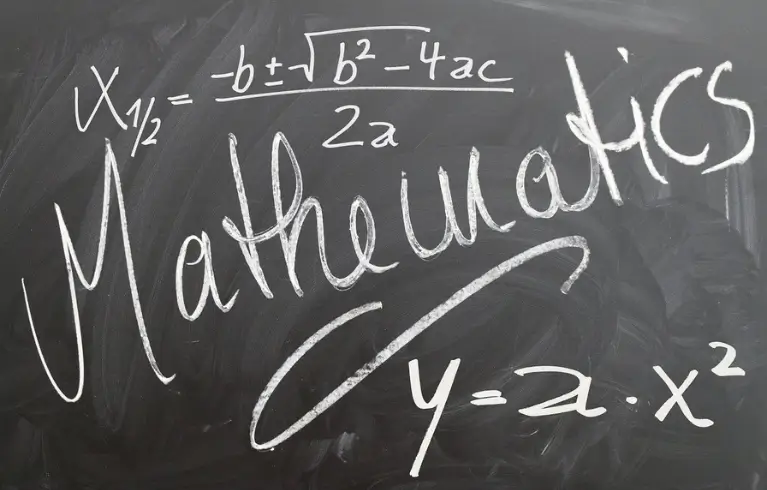Dividing fractions may sound complex, but with the right approach, it becomes a straightforward mathematical operation. In this guide, we’ll break down the steps to divide fractions, making it accessible to everyone, from students to adults.
What is a fraction in mathematics?
Prior to delving into the division of fractions, it is imperative to possess a comprehensive understanding of the fundamental concepts. It is important to recollect that a fraction is comprised of two components, namely the numerator, which is the upper number, and the denominator, which is the lower number. The numerator signifies the proportion of the entirety under consideration, while the denominator denotes the total quantity of identical segments that constitute the entirety.

The number $x$ is called the numerator, and $y$ is called the denominator.
Maintaining a fraction in its simplified form is a more expedient approach. The simplification of a fraction renders it highly amenable for utilization in mathematical equations.
Dividing fractions: step-by-step
Are you ready to become a fraction master? Dividing fractions is a piece of cake once you’ve got the classical operators down pat. The key players here are the multiplication of two fractions and the inverse of a fraction. But wait, there’s more! You’ll also need to know how to add two functions. Don’t worry if you need a refresher on these operators, we’ve got you covered. Let’s dive in and become fraction superheroes!
- Addition of two fractions: $$ \frac{a}{b}+\frac{c}{d}=\frac{ad+bc}{bd}.$$
- Multiplication of two fractions: $$ \frac{a}{b}\times\frac{c}{d}=\frac{ac}{bd}.$$
- The inverse of a fraction: $$ \frac{1}{\frac{a}{b}}=\frac{b}{a}.$$
The aforementioned operations on fractions provide a basis for the justification of the subsequent rule pertaining to the division of fractions.
| Dividing fractions satisfy the following rule: $$ \frac{a}{b}\div\frac{c}{d}=\frac{ad}{bc}.$$ | ➕ |
| In Fact \begin{align*} \frac{a}{b}\div\frac{c}{d}&=\frac{a}{b}\frac{1}{\frac{c}{d}}\cr &=\frac{a}{b}\times\frac{d}{c}=\frac{ad}{bc}.\end{align*} | |
Fractions division worksheets
Are you ready to take your fraction skills to the next level? Look no further than our exciting fractions division worksheets! These worksheets will challenge you to divide fractions like a pro, with fun and engaging exercises that will keep you on your toes. Whether you’re a math whiz or just starting out, our worksheets are the perfect way to sharpen your skills and boost your confidence. So why wait? Dive into the world of fractions division today and see just how far you can go!
| Exerise 1: Perform the division fraction division: $$ \frac{4}{5}\div (1+\frac{1}{2}).$$ | ➕ |
| Before applying the dividing fractions rule, we first calculate the sum $1+\frac{1}{2}$. Using the addition rule we have $$ 1+\frac{1}{2}=\frac{2+1}{2}=\frac{3}{2}.$$ Now replace $$\frac{4}{5}\div (1+\frac{1}{2})=\frac{4}{5}\div \frac{3}{2}=\frac{4}{5} \frac{2}{3} =\frac{8}{15}.$$ | |
| Dividing the fraction $$ \frac{n}{n+1}\div \frac{n^2}{1+ \frac{1}{n}},\quad n\ge 1.$$ | ➕ |
| First we calculate: $$ 1+\frac{1}{n}=\frac{n+1}{n}.$$ Second, $$ \frac{n^2}{\frac{n+1}{n}}= n^2 \times \frac{n}{n+1}=\frac{n^3}{n+1}.$$ Finally, \begin{align*} \frac{n}{n+1}\div \frac{n^2}{1+ \frac{1}{n}}&=\frac{n}{n+1}\div \frac{n^3}{n+1}\cr &= \frac{n}{n+1} \frac{n+1}{n^3} \cr &=\frac{1}{n^2}.\end{align*} | |
Conclusion
Dividing fractions may have seemed daunting at first, but the “Invert and Multiply” rule simplifies the process significantly. With practice, you’ll become proficient in dividing fractions, a skill that finds applications in various real-world scenarios, from recipes in the kitchen to complex mathematical calculations. Remember, mastering this skill is about understanding the concept and applying the straightforward steps outlined in this guide.
